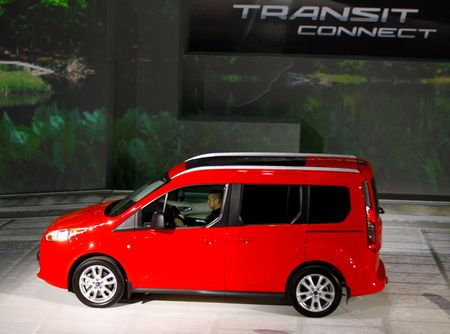By David Shepardson
WASHINGTON (Reuters) – Ford Motor will pay $365 million to resolve U.S. allegations it violated a federal tariff law by misclassifying and understating the value of hundreds of thousands of its Transit Connect vehicles.
The Justice Department said the settlement resolves allegations that Ford devised a scheme to avoid higher duties by misclassifying cargo vans imported from Turkey from April 2009 to March 2013.
The government said the settlement is one of the largest customs penalty settlements in recent history.
“Ford strongly disagrees with many of the characterizations in the DOJ’s statement and admits no liability in this matter,” a Ford spokesperson said. “But in the interest of moving on from this complex, decade-old dispute, we have agreed to settle the matter once and for all.”
Customs and Border Protection ruled in 2013 that Transit Connects imported as passenger wagons and later converted into cargo vans were subject to the 25% duty applicable to cargo vehicles, rather than the 2.5% passenger vehicle duty.
The Justice Department said Ford imported the vehicles “with sham rear seats and other temporary features to make the vans appear to be passenger vehicles. These temporary rear seats were never intended to be, and never were, used to carry passengers.”
Ford included these seats and features to avoid paying the 25% duty rate, the government said.
After Customs clearance, the Transit Connect vehicles were immediately stripped of rear seats and returned to its original identity as a two-seat cargo van.
“The government will not permit companies to evade duties by adding sham features to their products and then misclassifying them,” said Brian Boynton, head of the DOJ Civil Division.
Ford said in 2021 it could face up to $1.3 billion in penalties in a long-running dispute over import duties paid on Ford Transit Connect vehicles after the Supreme Court declined to hear its appeal in 2020 that it paid increased duties for some prior imports.
The 25% tariff stems from a 1960s trade war involving frozen chicken, and the larger tariff on cargo vehicles is known as the “chicken tax.”
Ford shares were down 0.5%.
(Reporting by David Shepardson; Editing by Aurora Ellis; Editing by Chris Reese and Aurora Ellis)

